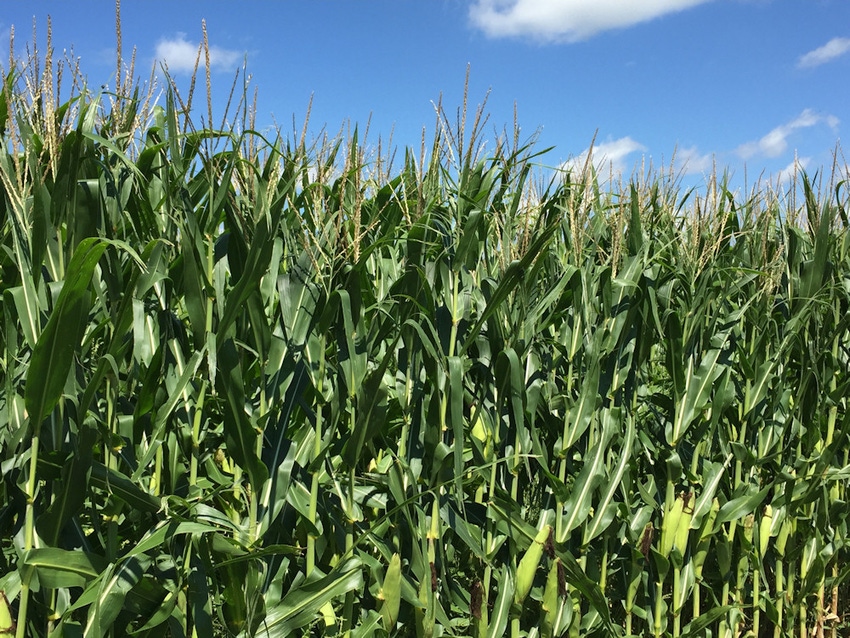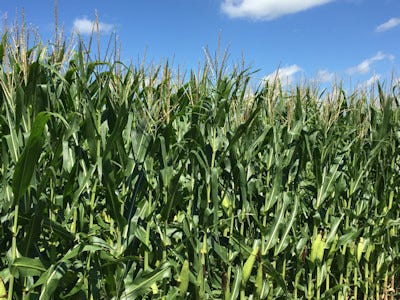October 2, 2016

Combines are rolling across the bulk of the Corn Belt - when it isn't raining. You're working to bring in that once-a-year paycheck. But what if you couldn't do what you do? What if rules, regulations and outright blocks on tech you need were put in place?
I'm painting a dire picture, and one I don't think we'll get to, but the road ahead is filled with an interesting array of potholes. Regulators are ganging up on the very crop protection products you've relied on for more than 50 years. Yes, atrazine is under scrutiny again and frankly it's getting old. The science is sound, and when used properly the product stays where it belongs and detects in wells are usually well below levels set by EPA.
Yet like someone who keeps banging on the horse - it's dead Billy! - anti-technology folks somehow goad EPA staffers to push re-reviews of the product again. Note, there's probably no other item used anywhere that's had the crush of scientific studies done in the past 20 years. In this latest round the public comment period is ending on Wednesday. The folks at the National Corn Growers Association have a website where you can file comments, and they also link to agsense.org where key scientific information is housed too.
Beyond that a bigger question looms. With the rise of future genetic and crop protection technologies for the future, will farmers be allowed to put them to use?

Atrazine - a well-researched crop protection tool - is under constant fire by groups opposed to use of crop protection products. It's just one example of the impact of the anti-ag-technology movement.
Recently, I attended the Agricultural Bioscience International Conference - it was in Fargo, N.D. and the event drew scientists from around the world. I'm still going through the pile of notes from that event and you'll be seeing more coverage in the future. But there was a comment made by a couple presenters about the need to tell ag's story so we'll be given permission to farm.
That stopped me in my tracks. Why wouldn't we be able to farm? What could stop the production of food? The answer is not as simple as "some law" but still it's a big challenge. Groups of anti-science folks who envision agriculture as just one big garden where we toil away with hoes and pitchforks don't like modern agriculture, at all, and they want something different.
We often hear we need to feed 10 billion by 2050 - and of course the U.S. isn't going to feed all those people. However, the technologies global companies are working on can help all farmers. From making pest resistant plants that small-holders can raise for food, and profit, in Africa, to new crop protection products that help us keep producing more bushels per acre.
And there are some amazing technologies coming to market in the next decade that hold promise for stopping pests, boosting production and even reducing pesticide use. The challenge is that we have to make sure the consumer knows these are necessary, and safe, tools. We will have to explain gene editing. We'll have to help people understand that crop protection products aren’t destroying the world.
So the challenge ahead is everyone's. Bayer wants farmers to "agvocate." It's a term that frankly I've cringed from (sorry my friends at Bayer) since I'm not a big fan of made up words. But this time I might bend. We all need to advocate for agriculture.
I heard about some great new technologies coming to market during ABIC that will allow specific changes to plants to help us achieve not only better production but reduce water use, improve nitrogen utilization, and boost the final quality of the crop for the consumer. And at the same time, these tools will allow you to farm with less tillage so you can keep boosting organic matter and creating better soil health.
That's the future I want, not some non-science-based enforced labor camp for an industry that can't find enough labor to produce food now. And the anti-science crowd is already lining up its stories against these fledgling technologies.
So if you're asked to speak to a school group, or conduct a tour of your farm (and I've worked with a few of you for this kind of thing) say 'yes.' Tell your story. Explain why you do what you do. Show that there's a purpose to your practices. And share the quality of your life. Living on a farm is still a very cool thing. Let's make sure we get to keep doing it.
You May Also Like




